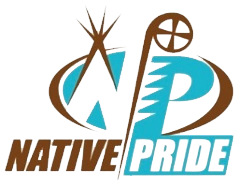Abstract
Mental health professionals that work with American Indian and Alaska Native (AI/AN) populations are often viewed as ineffective because their professional training is based on a Western model of service delivery that is an extension of Western colonization. Research on effective training approaches for AI/AN mental health providers or mental health professionals that work with AI/AN populations is limited. The purpose of this study is to document the experiences and impact of the Good Road of Life (GRL) training on mental health professionals that work with AI/AN populations. A cross-sectional mixed-methods design was used to answer the primary research question, “What is the impact of GRL training on mental health professionals who work in American Indian communities?” We used GRL ratings, self-reported impacts, knowledge gains, and pre-post Sources of Strength scores. Self-reported mean knowledge scores increased for all topics. Daily evaluations indicate that most participants felt more positive, knew more about the impacts of sobriety, and knew how to help a suicidal person. Sources of Strength mean scores increased in the following areas: confidence, belonging, historical trauma, using strengths to overcome difficulties, spiritual practices, resolved unhealthy relationships, and use of cultural resilience. Results indicate that GRL is an effective short-term training for professionals working in the mental health field throughout Indian Country.


